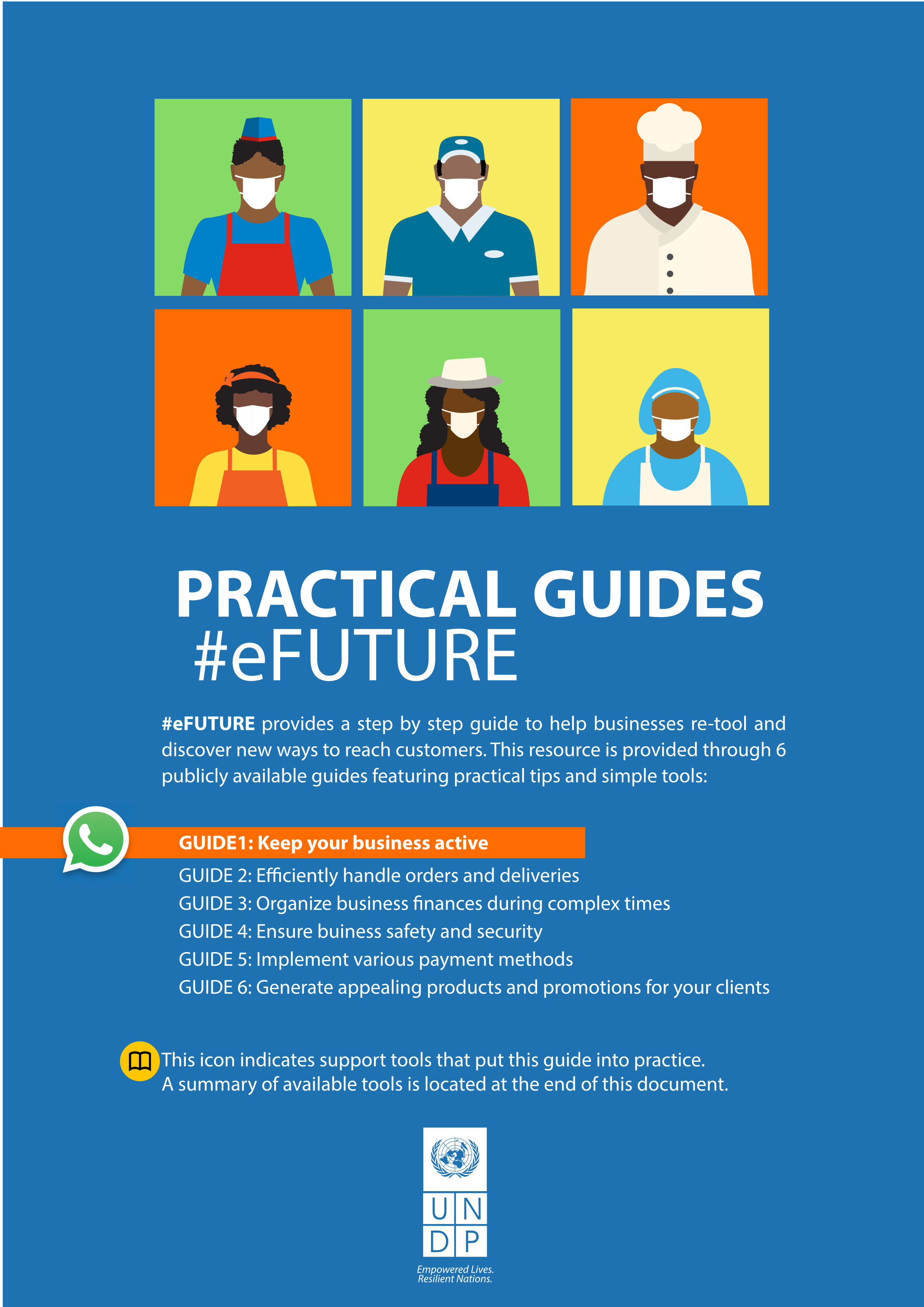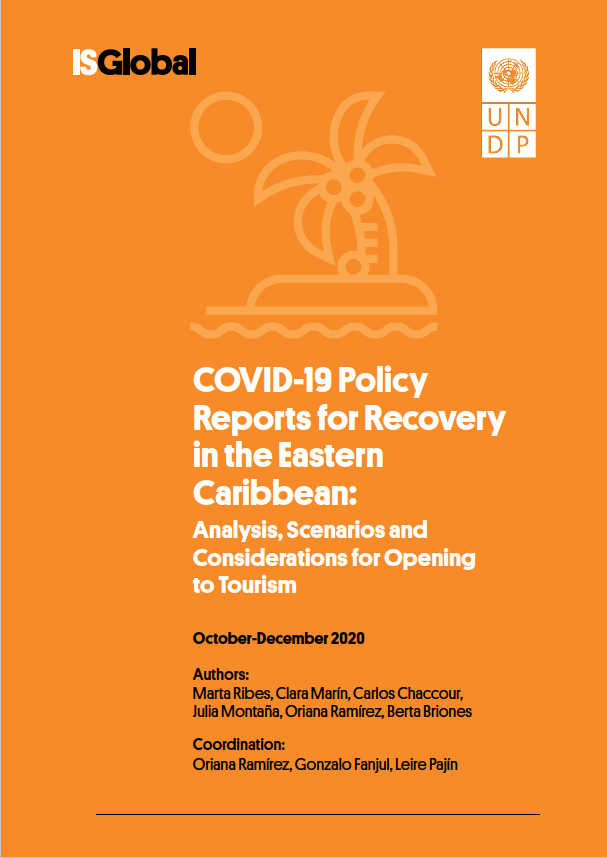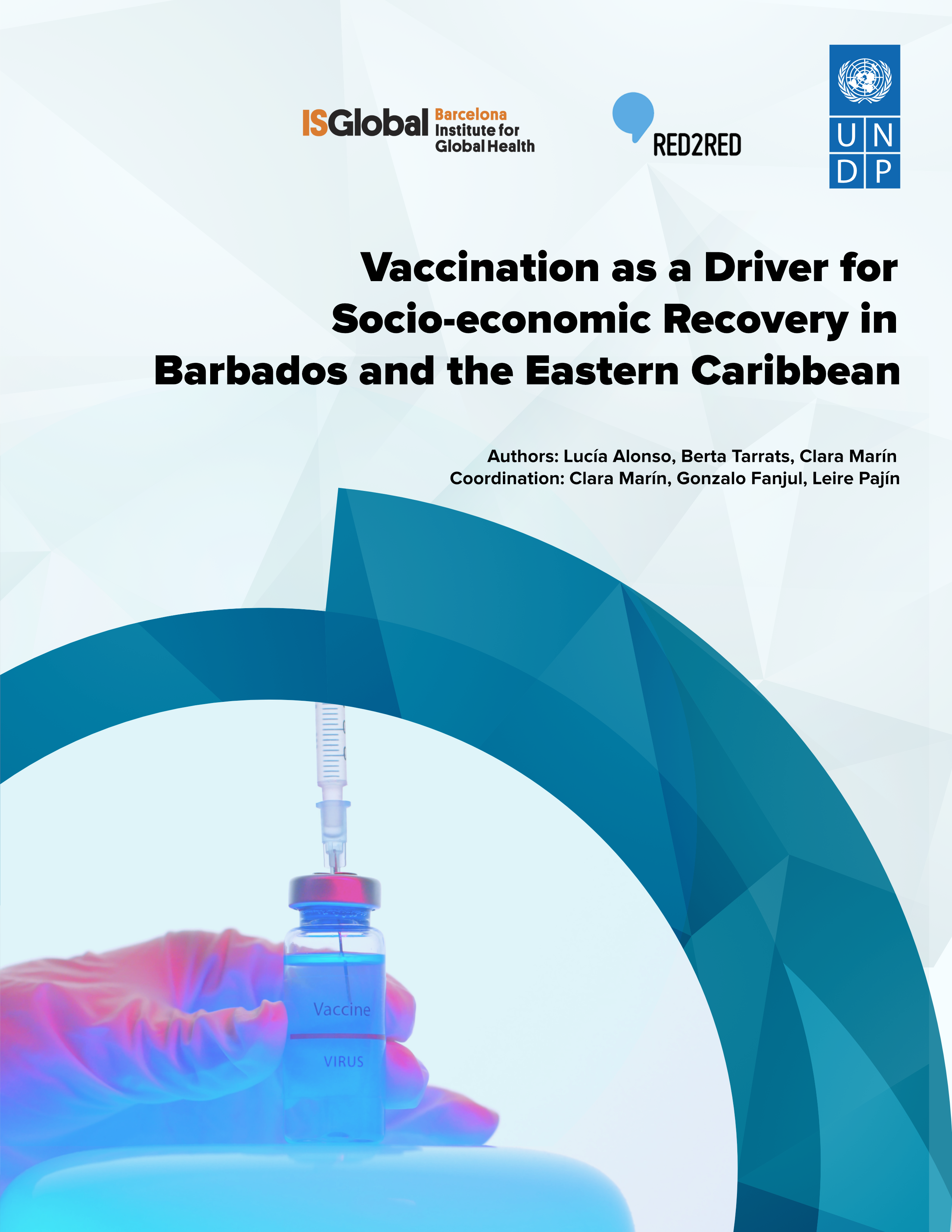COVID-19 Response Programme
UNDP in collaboration with international and regional partners and governments is working to mitigate the effects of COVID-19 and build a more resilient region! Take a look at our COVID-response thus far, as we continue to partner with regional leaders to #buildforwardbetter
THE APPROACH
The COVID-19 pandemic has caused unprecedented shifts across the globe. Governments of the Caribbean have been actively deploying national responses to the threat of this deadly virus in the context of already challenged fiscal realities, physical infrastructure and service delivery systems. As these countries’ economies are not sufficiently diversified and rely on tourism, foreign direct investment and trade for their growth, the massive slow-down in output and imports will amplify the first order effects of the disease in the region. The pandemic’s combined impact is therefore likely to not only be widespread, affecting virtually all aspects of the economies, but to continue well after the population has recovered from the physical health symptoms of the disease. In the case of most countries in the Eastern Caribbean, the impact of the virus will reinforce existing social and economic vulnerabilities, inequalities and risks.
As tourism has come to a standstill, the direct and indirect source of over 40% of GDP and 25% of the private sector, jobs are at serious risk. Public sector jobs are not immune to the crisis. In addition, the fragile agriculture, fisheries and non-tourism service industry will be significantly impacted, as the main buyers (cruise ships, hotels, restaurants) have disappeared from the local market. As a global pandemic that threatens to profoundly deepen disparities and undo progress on sustainable development more broadly, COVID 19 is already taking a heavy toll on individuals, families, communities, businesses, economies, governments and infrastructure.
UNDP is supporting countries:
- Assess and address the socio-economic impacts of COVID-19;
- Manage the crisis through a multi-sectoral response framework, including assistance for the reopening of the Economy; and
- Strengthen resilient health systems, including health procurement support in coordination with PAHO, the UN Procurement Cell and CDEMA.
UNDP’s response programme combines urgent action with quick results, strategic planning, data analytics and long-term impact. An urgent response should not be the only answer to tackle the pandemic. An effective response must be driven by solidarity, science and human rights, whilst focusing on the most vulnerable people.

|
PILLAR 1 – Addressing the socio-economic impacts of COVID-19 Initial assessment reports and sectoral “deep-dives” on the impact of the crisis for data driven and evidence-based decision-making processes. Capacity strengthening and support for policy implementation at national level. |
|
PILLAR 2 – Inclusive and multi-sectoral crisis management and response Support to economic transformation, retooling, reskilling and recovery for Micro, Small and Medium Enterprises (MSMEs), and vulnerable populations. Technical coaching for reconversion of SMEs which need expertise and financial assistance to refocus their business model on a domestic and regional consumer base, implementing an import substitution strategy, repurposing production facilities to manufacture high-demand goods and services (PPEs, ancillary and basic medical equipment) and/or transition from an in-person, physical interaction business model to a virtual, online, take-away or e-commerce one. |
|
PILLAR 3 – Resilient health systems to respond to COVID-19, including health procurement support Overcoming the severe disruptions in the global supply chain for key healthcare and ancillary supplies and equipment crucial to the crisis response, including difficulties in trade routes, price hikes and speculation, a specific service line based on UNDP’s extensive logistics experience in the health sector procurement provides quality assurance, products from reputable suppliers and manufacturers and efficient, timely and cost-effective procurement. UNDP is part of the UN Caribbean Subregional Team Procurement Taskforce (PAHO, UNDP, UNICEF and UNOPS) and of the CDEMA logistics cell.
|

OBJECTIVES
1. Initial micro-economic assessment reports on the fiscal and human development impact of the crisis.
2. Sectoral “deep-dives” on the impact of the crisis and social assessments.
3. Capacity strengthening and support for policy implementation, M&E.
AREAS OF WORK
Research and Policy Advice
Analysis of the main mechanisms through which the crisis is affecting the local economy, both external and internal. This analysis identifies the impacts in local financial, economic and social systems. UNDP is partnering with UNICEF and UN Women, UWI and IS Global, and exchanging methodological information with other non-Government partners.
SURGE Support to National Institutions for Policy Implementation
Temporary surge (3-4 months) of a senior economist in the Finance Ministry or similar of the participating Member States, to support the implementation of stimulus packages and stabilisation policies, which will be targeted, short-term measures designed to mitigate the immediate impact of the crisis and strengthen the capacity for medium and long-term recovery.
Impact on Government Finance
This assessment examines how government finances are being impacted and assess the extent to which the state is able to rely on domestic sources (financial markets, monetary authority, national stabilization funds, CBI resources, etc.) and/or external financing mechanisms (ODA, concessional borrowing).
Sector Specific Analyses
Deep dives into key strategic sectors on-demand, to fine-tune impact assessments and develop recovery strategies. Human Development analyses of accrued vulnerability of specific groups such as working women, the elderly, youth, children or migrants.
Modeling and Scenario Planning for the Economic Reopening
Design of National Transition Plans and ad hoc policy advisory services to Cabinet for the Reopening of the Economy considering health, social and macro-economic considerations. Policy advice is based on international best practice.
Human and Economic Assessment of Impact (HEAT) Reports for the Eastern Caribbean
The HEAT Report series comprises 8 publications from the United Nations Sub-Regional Team in Barbados and the Eastern Caribbean which form part of the combined offer from the UN system to support counties in their response to the COVID-19 pandemic. Coordinated by the United Nations Development Programme, UNICEF and UN Women, the publications model a number of possible impacts on economic growth, poverty and government finances and identifies and examine a range of relevant interventions and strategic recommendations needed to promote relief and resilience in the Caribbean.
Click to download the HEAT reports for Anguilla, Antigua and Barbuda, Barbados, British Virgin Islands, Saint Lucia and Saint Vincent and Grenadines.
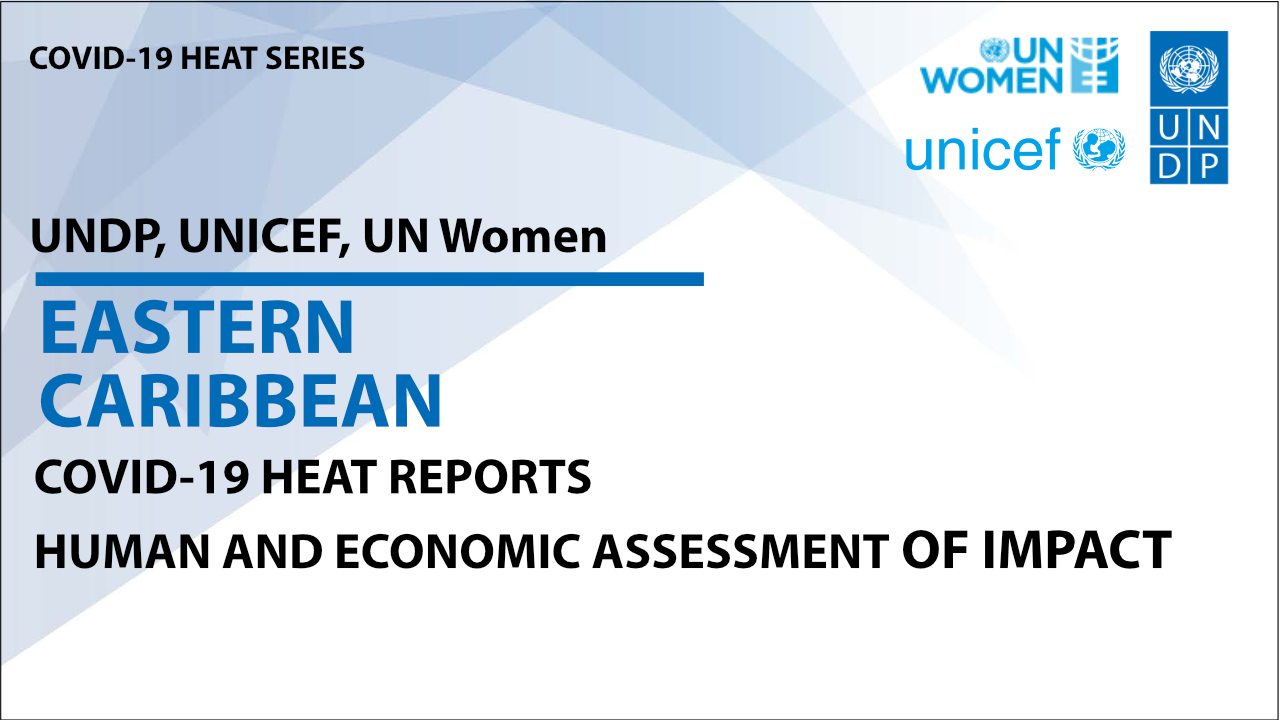

ECONOMIC TRANSFORMATION
UNDP is focusing on supporting economic transformation and recovery for Micro, Small, Medium Enterprises (MSMEs) and vulnerable populations. The support to economic transformation consists in know-how transfer for retooling, reskilling and recovery of MSMEs and the self-employed.
Technical coaching is offered for reconversion of SMEs which need expertise and financial assistance to refocus their business model on a domestic and regional consumer base, implementing an import substitution strategy, repurposing production facilities to manufacture high-demand goods and services (PPEs, ancillary and basic medical equipment) and/or transition from an in- person, physical interaction business model to a virtual, online, take-away or e-commerce one.
To this end, UNDP is partnering with Government, select Private Sector companies, umbrella organisations, nonprofit and social enterprises to pilot innovations and provide more traditional and proven assistance.
APPROACH
This work consists in a no-cost to the beneficiary injection of technology, especially for non-interfaced commerce. Stakeholders’ consultations, market research and the creation of business sustainability plans for co-created solutions are steps in the critical pathway for the delivery of the modular support package. UNDP has initiated this work through agreements with other UNDP offices, national institutions, private sector, incubators and CSOs.
The #eFUTURE platform provides strategic steps to help businesses re-tool and discover new ways to reach customers, through 7 guides which feature practical tips and simple tools.
WiFetch is developing a digital market place enabling unemployed persons to seek income generation opportunities and pivot skillsets while ensuring safe consumer access to local products. With FarmFinder, UNDP is co-creating a digital farming and fisheries portal to more effectively connect local vendors to consumers and develop traceability systems. TenHabitat is the partner working with MSMEs and digitalization, creating employment and generating new opportunities.
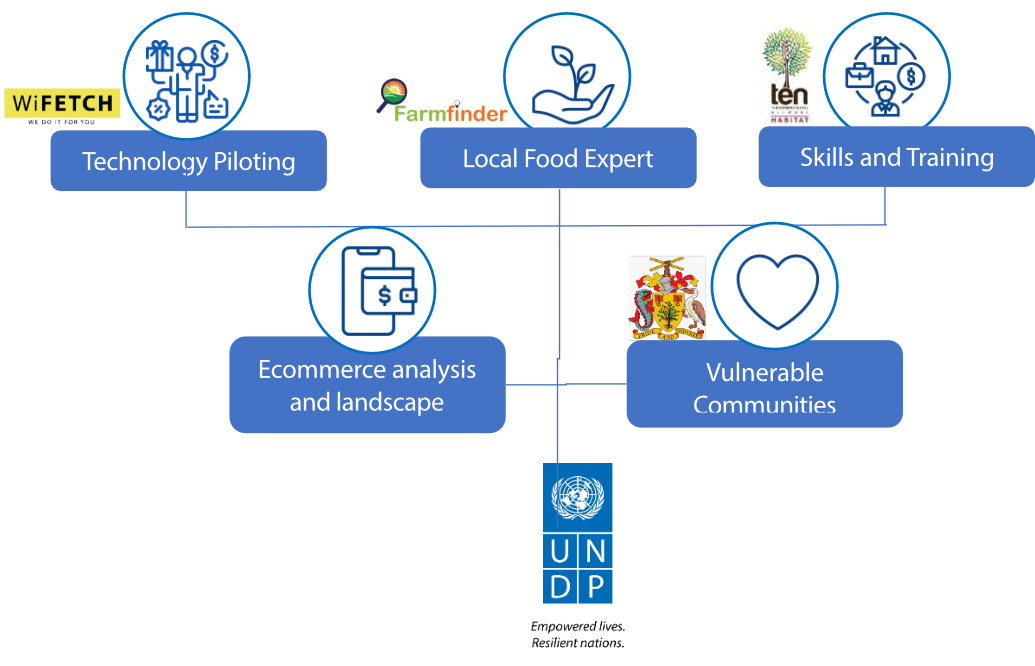
KEY PRINCIPLES
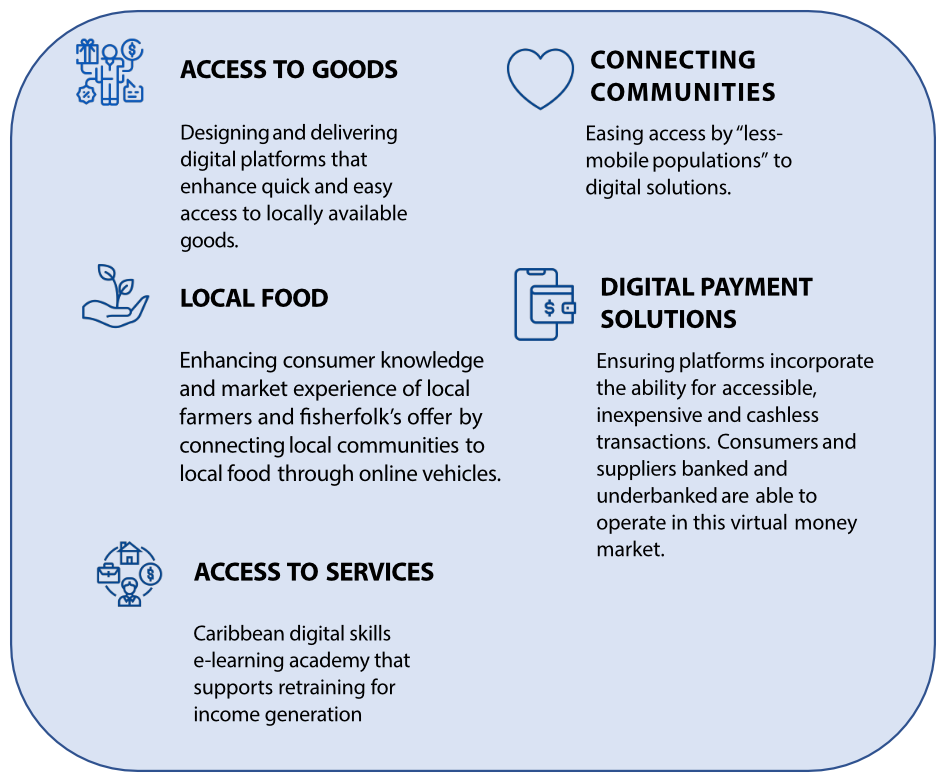
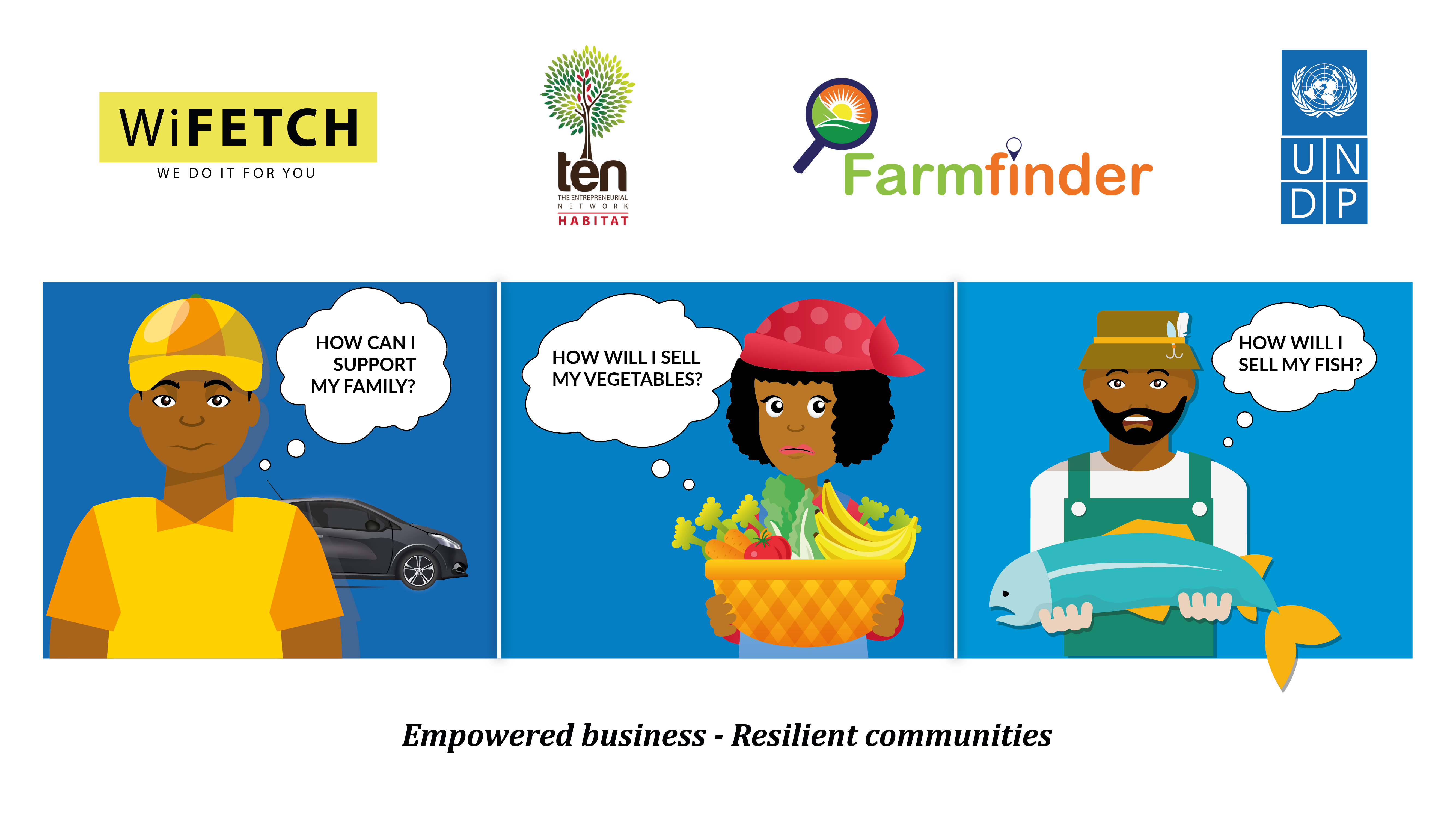
ECONOMIC RECOVERY AND HUMAN SECURITY
SMEs need technical and financial assistance to reprogram their production lines. Import substitution strategies appear as a viable option to capture domestic market segments left uncovered by the disruption of supply chains, and the cost and difficulties of international
TECHNOLOGY GRANT PROGRAMME
Small and Medium Size Enterprises (SMEs) need technical and financial assistance through targeted small grants for IT and mobile communication equipment, software and systems technology for supply chain strengthening. Priority will be given to women-owned businesses. Linkages with social protection systems and schemes will be sought. UNDP works in collaboration with WFP and FAO on this sub-programme.
IMPORT SUBSTITUTION OF HEALTH SUPPLIES
Due to the disruption in the supply chain of PPE there has been a request from various governments to re-purpose local manufacturing plants to new production lines of this equipment. Technical support is provided to chemicals and garment industries to support their re-conversion leading to the development of products better suited to current market conditions.
Support includes:
- Identification of companies’ needs and objectives and virtual tours of the production line by the coaches
- Identification of processes inclusive of timelines for reconversion of products
- On-demand support through tutorials, coaching sessions, market research and viability studies
- Quality Assurance, national requirements and ISO standards observation and certification
- Product development and commercialization
CASH GRANTS & SOCIAL PROTECTION TOP-UPS
· Livelihood support through provision of cash grants to the most vulnerable individuals and households, building on the social protection systems and databases of the countries
· Development of new instruments such as food security grants (FSG), food security baskets (FSB), and one-time or periodic support grant for workers/self-employed persons who have lost their job or income, akin a social stability grant (SSG).

The pandemic has caused severe disruptions in the global supply chain for key healthcare and ancillary supplies and equipment crucial to the crisis response and to side-pressures on the healthcare system. Countries in the region have found their hospitals, clinics and warehouses at significant deficit in these supplies compounded by further challenges such as disruptions in trade routes, price hikes and speculative marketplaces for specific equipment.
Support to countries with procurement of specific supplies is based on extensive logistics experience in the health sector procurement, a vetted quality assurance methodology, a roster of reputable suppliers and manufacturers and efficient, timely and cost-effective procurement of equipment and supplies that would result in an increased response capacity to test, treat and recover. It will also result in a mid to long-term investment in hospital capacity that may partially relieve expenditure from the Public Health budgets 2021 and 2022. UNDP is part of the UN Caribbean Subregional Team Procurement Taskforce (PAHO, UNDP, UNICEF and UNOPS) and of the CDEMA logistics cell.
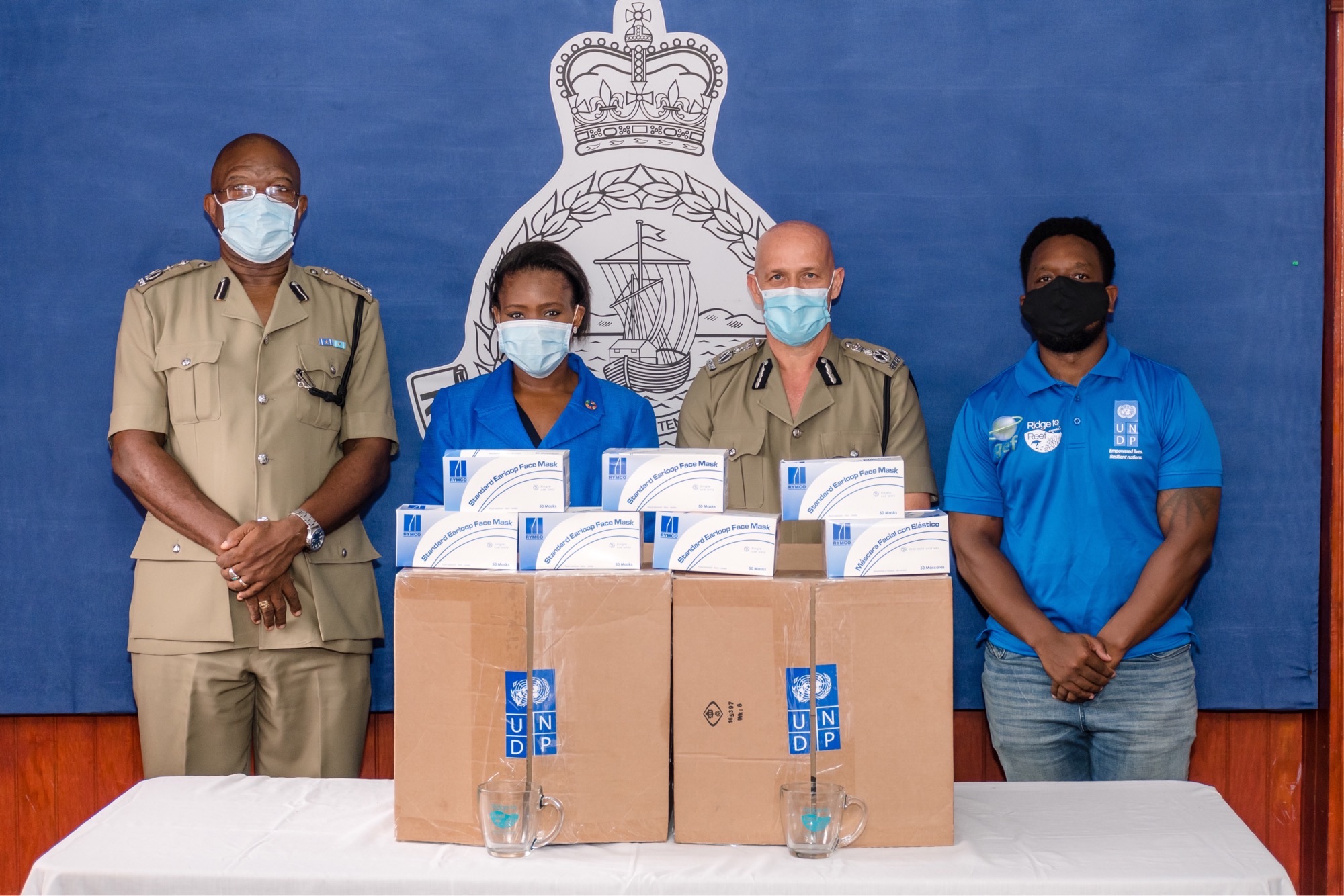
Michael Francois, Assistant Commissioner of Police. Rudo Udika- Coordinator. Edvin Martin, Commissioner of Police (Ag). Delvin Mason, Community Liaison Officer- Grenada
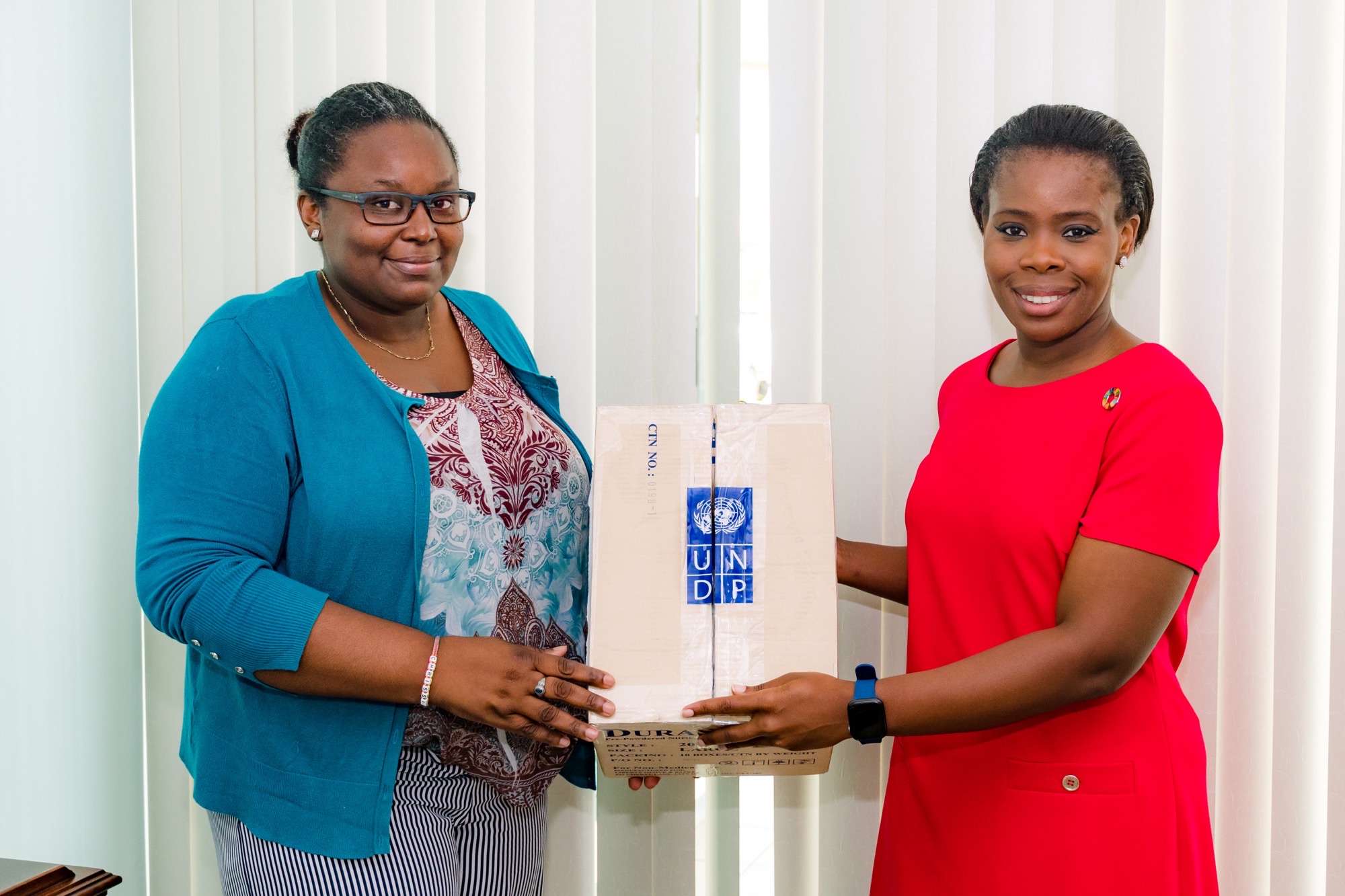
Chrissie Worme- Charles, Permanent Secretary (Ag), Ministry of Social Development Housing and Community Empowerment. Rudo Udika- Coordinator, Grenada.
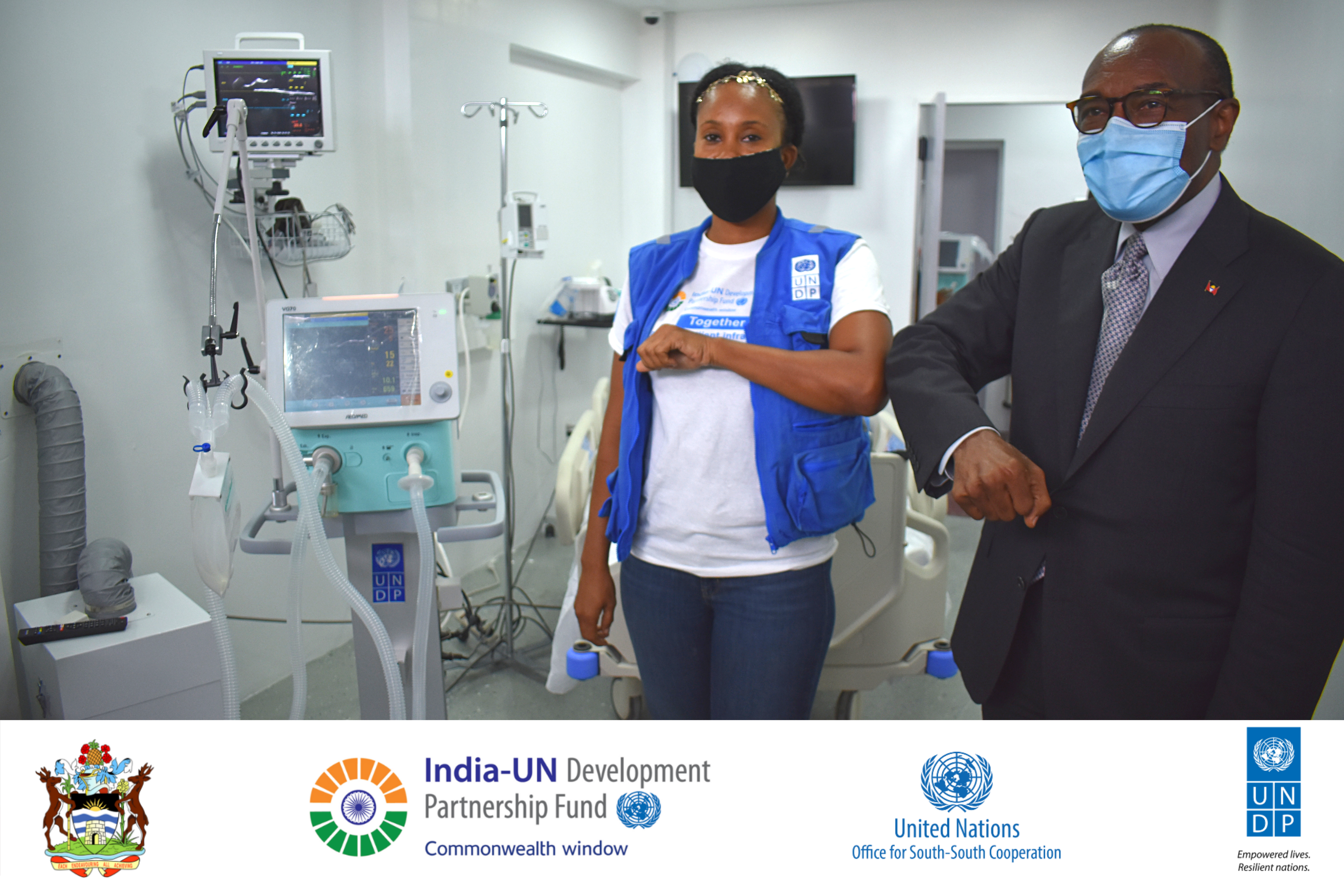
Pictured: UNDP Antigua & Barbuda Head of Office Mellissa Johnson (left) with the Minister of Health, Wellness & the Environment Hon. Molwyn Joseph (right) at the handover of five ventilators on Thursday 25th June at the Infectious Disease Center (IDC).
COUNTRY LEVEL SUPPORT
UNDP aims to support all the countries under its purview. To date the following initiatives are ongoing or about to start implementation:
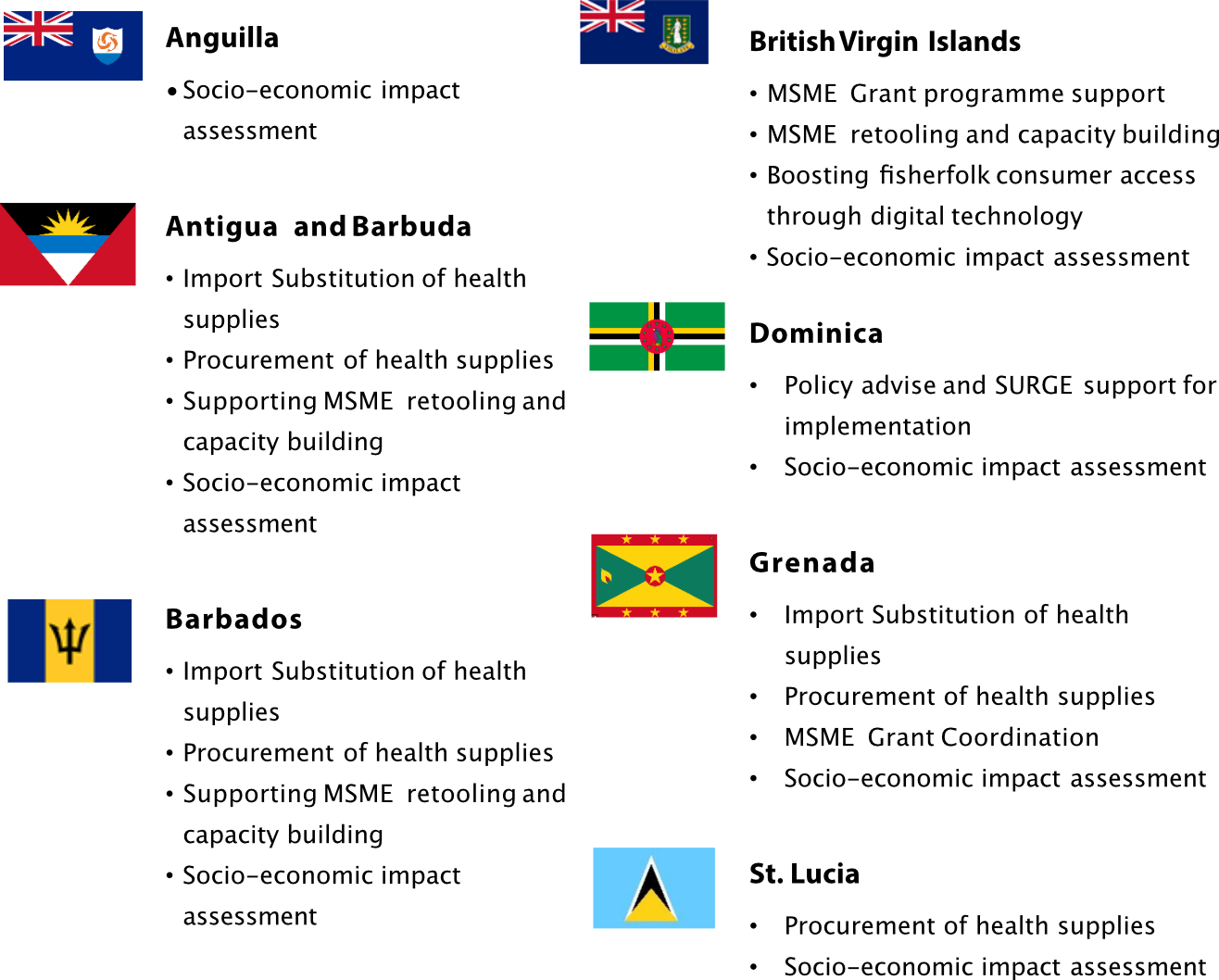
FINANCIALS OF THE UNDP COVID-19 RESPONSE PROGRAMME
PILLAR |
RESOURCES MOBILIZED (in USD) |
RESOURCES TO MOBILIZE (in USD) |
PILLAR 1 – Addressing the socio-economic impacts of COVID-19 |
$120,000 |
$240,000 (for the deep-dive analytics) |
PILLAR 2 – Inclusive and multi-sectoral crisis management and response |
$120,000 |
$3,000,000 (SME support in-country for import substitution and digital transformation) |
PILLAR 3 – Resilient health systems to respond to COVID-19, including health procurement support |
$950,000 |
$ 3,500,000 (Procurement for Grenada, Antigua and Barbuda, St. Lucia source of funding identified and tbc soon) |
Total |
$1,190,000 |
$6,740,000 |

 Locations
Locations